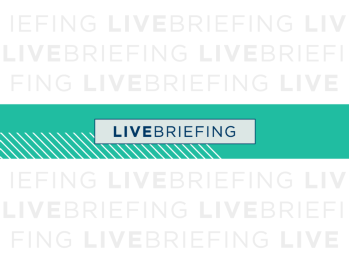
Mitigating Online Harassment in Curricular and Co-Curricular Spaces
Virtual Live Briefings
August 10, 2021 2:00-3:30 pm (ET)
Most undergraduates experience online harassment as both the victim and the bystander (i.e., witnessing their peer being harassed online). Few, however, turn to student affairs professionals or faculty when they need help. In this interactive live briefing, the presenters will address how to position yourself as a trusted helper. Topics will include:
- The climate fueling a culture of online harassment
- Why these victims and bystanders do not reach out
- Policies and practices to prevent and respond to online harassment
This will be a highly interactive program! Registrants are encouraged to priortize attending the live session to gain more key takeways from the presenters.
Learning Outcomes:
- Understand the types and scope of online harassment among college students
- Identify the warning signs of online harassment and, more broadly, a toxic online environment
- Determine a policy for syllabi or programs on how to prevent and respond to online harassment
Presented By

About
The presenters' research has found that most undergraduate students experience online harassment as both the victim and the bystander (i.e., witnessing their peer being harassed online). Experiencing online harassment is associated with psychosocial issues such as social anxiety (Juvoven & Gross, 2008), and no longer seeing campus as a safe environment (Varjas et al., 2009). Online victimization has been found to cause people to avoid or "chill" their engagements with peers both in online and face-to-face environments, out of fear of social disapproval, or future harassment (Alipan et al., 2018; Marder et al., 2016). Few of these students, however, go to their professors or advisors when they need help. In this interactive live briefing, the presenters will address why students do not turn to their faculty and student affairs professionals when they are experiencing online victimization and what you can do to position yourself as a trusted helper. The presenters will:
- Present an overview about the climate and policies that fuel a culture of online harassment, patterns in first-hand and secondary victimization, and why these victims and bystanders don't seek your help.
- Discuss six scenarios (in small break-out groups) in which participants strategize how to help students who are experiencing online harassment.
- Identify policies and practices to educate students on online harassment, prevent it from happening in your spaces, and prepare a plan for when a student comes to you for support.
Students need us to be aware of and prepared to respond to online harassment—an emerging equity issue in higher education with well-documented social, psychological, and academic consequences. For today’s undergraduates, online harassment is a pervasive issue in their online lives that shapes how they participate in online social and civic communities. As a modern form of silencing the voices of those with less perceived social power, online harassment leverages the social networks and media platforms intended to support community and civic discourse to oppress and silence victims and witnesses into submission (Chadha et al., 2020). In response, victimized students may withdraw from their online communities, and develop mental health issues including anxiety and low self-esteem (e.g., Holt et al., 2014; Selkie et al., 2015).
Speakers
Registration
Registration as a member is based on individual membership status at the time of the live event. If your current membership will expire prior to the live event, you will have the option to renew at the time of registration to receive the member rate. Registration for on-demand content is based on individual membership status at the time of the purchase.
If you are not a NASPA individual member, please visit our membership section to learn more about membership types and benefits. We hope you’ll consider joining today!
If you are experiencing financial hardship, you may qualify for a NASPA Foundation Membership Scholarship.
For a comprehensive listing of NASPA registration policies, please visit this page.
|
Registration Fees
|
|
NASPA Members
$49
|
|
Non-Members
$199
|
Policies and Contact Information
Contact Information
Registration Issues/Questions:NASPA Main Office - (202) 265-7500
|
Program Questions/General Information:Joseph DeSanto Jones - (202) 903-0654
|
Payment Policies
To view NASPA's complete payment policies and procedures, click here.
Captioning Assistance
Text Captioning Support: NASPA kindly requests five business days notice for captioning requests. You can request captioning within the online registration process. If your registration is received within the five business days prior to the live event, you will be contacted by NASPA staff.

